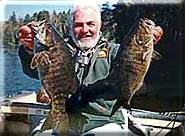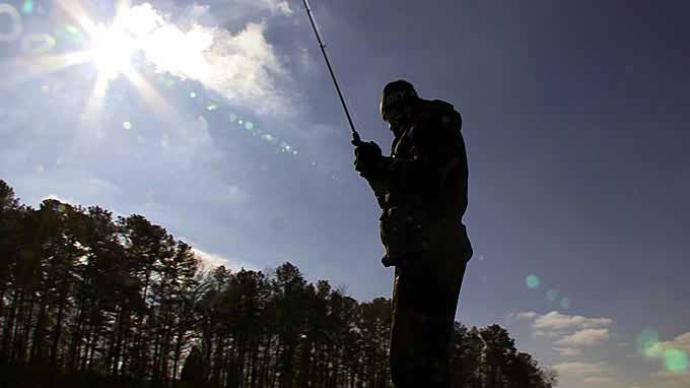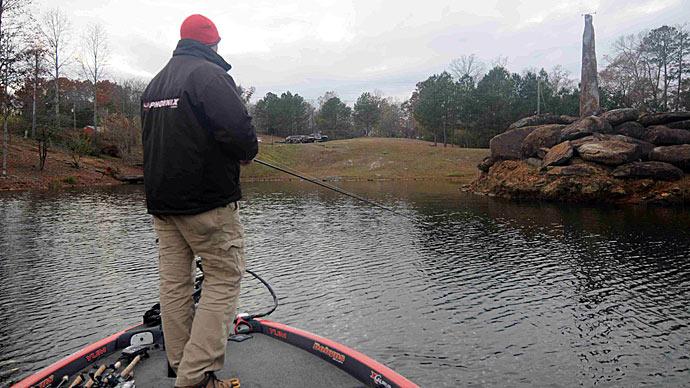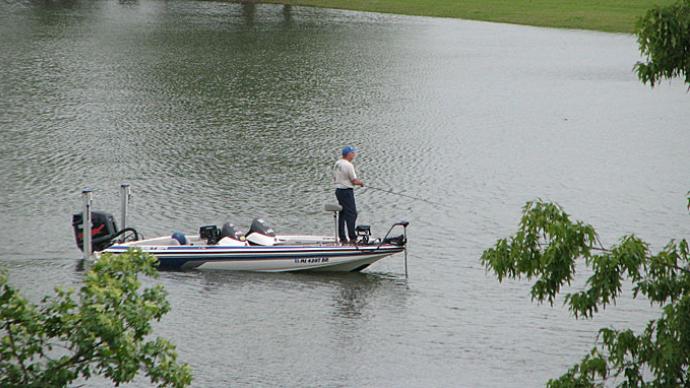
Sooner or later, you're going to fish after a hard rain. There are several things to remember if you face these conditions on your next outing. The first is that rain usually means a front has passed through the area. So your success, or lack thereof, might not be because it rained but because a front passed through.
Study the weather to determine whether it was a front and fish accordingly. Of course, you'll first need to do whatever was working before the rain came. It might still be working afterward, but the odds are against it if bright sunny conditions follow the rain.
Should you be met with the sun following a rain, slowing down your presentation and working lures closer to cover will be your best bet for success. Likewise, bass will be tighter to cover under bright conditions following the overcast usually brought on with rain.
Whether warm or cold rain will also determine how you should approach the day. For example, in spring, a warm rain can turn the bass on quicker than anything can. This is because it will warm the water rapidly, but in that same frame of thought, it can shut them down if it is a cold rain.
The intensity of the rain is another significant factor. With heavy rain, you can expect a lot of run-offs. You'll have to check the areas you usually fish to see how muddy the water has become. If these areas were clear and then became muddy, the bass would be hard to find. The first place you'll need to look for is where the muddy water meets the clear. The edge created by the clear and muddy water is where bass will move to feed.
You will also need to determine if the lake is on the rise after heavy rain. If it is, then bass will make a decisive move toward the bank. This makes for a wonderful day of fishing, but if the powers-that-be at your favorite lake have opened the floodgates to drop the water level, it's a new game. Bass are reluctant to move shallow, even during the spawn, if water levels are falling. Any time you encounter falling water conditions, fishing can be very tough.
During heavy rains, some coves will continue to remain clear. However, there will be coves where the water traditionally becomes muddy following heavy rain.
You'll need to study the lake so that if it does rain the day before your trip, you will know what to expect before you even get there. One of the main things to remember is that even if an area, or the whole lake, becomes muddy following heavy rain, you can still find clearer water if you move far enough up the feeder creeks. This is one condition that you can use to your advantage. I've had some banner trips fishing the clear water in feeder creeks when no one else on the lake was succeeding.
Be aware that after rain, some lakes may even have a current. This will position bass on points downstream and bunch them up. However, even a slight change in the current will make the fish active and result in an excellent day on the water. Fish will be active on points, but they will also be feeding in other areas. Just be aware of this and fish accordingly.
During the fall, one condition that can make fishing tough is if the lake turns over following rain. When the water surface temperature is pretty high and a couple of days of cold rain occur, this will cause the lake to turn over. Following this weather, fishing will be very slow for at least a few days.
Last but not least, the conditions that can occur happen because of thunder and lightning. Shallow-water bass spook easily and will move to deeper water. So, if a heavy rain accompanied by thunder and lightning has occurred at your lake, adjust by fishing a little deeper than you did before the rain.
Fishing after rain can help or hurt the fishing. But first, you must study the situation and remember some basics about these conditions. Most of it is common sense. For example, if the water is rising, fish will move shallower. If the water is falling, they will move out deeper. And don't forget you might want brighter colored and nosier baits should the water be muddy, whereas more natural or subtle colors can be used in clearer water.
Bill Wilcox is sponsored by Ranger Boats, Yamaha Outboards, MCMC, BG Products, Pro Rule, Johnson Fiberglass, Brown's Automotive, Continental Batteries, Kistler Rods, Swamp Hog Lures, Strike King Lures, Fun-n-Sun Sports Center.




